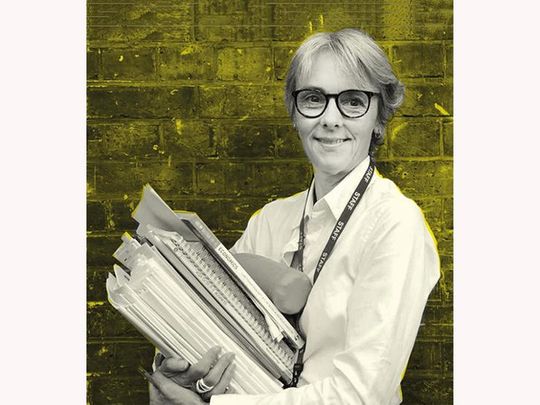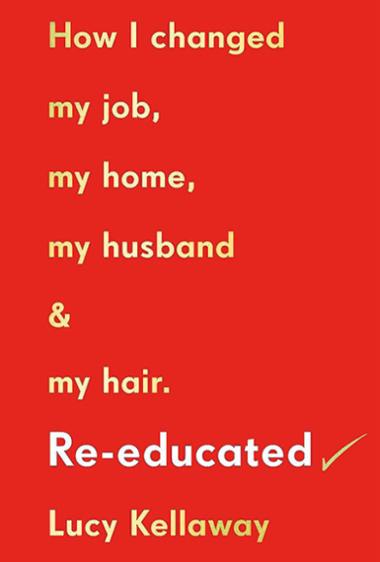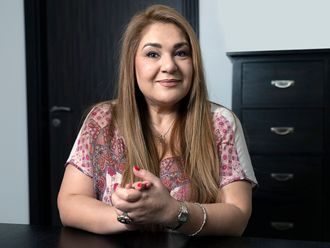
Six years ago, Lucy Kellaway was living in a large terraced house in Highbury with her husband and four children. Lucy, author of the new new memoir Re-educated: How I changed my job, my home, my husband and my hair, was a highly regarded columnist on the Financial Times, where she had worked for 32 years. Her husband, David Goodhart, was the founder and editor of Prospect magazine and they’d been married for 25 years. Their lives seemed to be a model of affluent, enviable stability.
Chucking it all up...
And then, she writes, "In the space of two years I tore it all down. House, marriage, job, considerable income – I despatched the lot of them." She decided to move house, separate from her husband and become a schoolteacher. She also co-founded a charity, Now Teach, which would encourage other middle-aged professionals to go into teaching.
... to start all over
Why? This to me is the most interesting part, though she races through it a bit quickly. She claims the trigger was seeing a house called The Framehouse that was for sale in Hackney. It was basically a triangular wooden shed down a muddy lane. She went to visit it "just for fun" and fell in love at first sight. Her son, Stan, approved: he said he had once been to a party there and "It’s the coolest house ever". It was cool, but also cold, and wet whenever it rained, and the surveyor said very firmly "Do. Not. Buy. This. House". But she bought it anyway and says she still gets a kick out of living there.

So she sold the Highgate house, divided the proceeds with her husband, and he took off for a flat in Hampstead. This is where I could have done with a bit more explication, but she admits that there were cracks in their marriage already. She thought they’d agreed to soldier on a few more years till the children were through university, but anyway the children were fine.
Of course, she could have bought a new house and separated from her husband without actually giving up her career. Why do that? She felt she was getting stale as a journalist, and wanted to do something useful. Her mother had been a respected schoolteacher, and one of her daughters was already a teacher, so she had some knowledge of what it involved. But still she had no idea it would be so exhausting. When old friends sometimes suggested they should meet for coffee or lunch, she laughed. What coffee? What lunch? Any minute when she wasn’t teaching was spent marking or preparing lessons.
Her first trainee placement was at an academy school with very strict rules – children could be given a detention just for being one minute late. At first she thought this was absurd, but after another placement in a more "relaxed" school, she became a total convert to authoritarianism, and when she qualified as a teacher she returned to the first school. "There is no nonsense about happiness or creativity – this is about getting exam results." She has come to believe that worrying about happiness and creativity is a middle-class luxury; children from disadvantaged backgrounds need to pass exams so that they can go on to better things or at least find a job.
In the final chapter, she ponders whether she has succeeded in reinventing herself, and sends a questionnaire to all her family and friends, asking if they think she’s changed. She says, "Though I’ve not been reinvented, but I am being re-educated."












